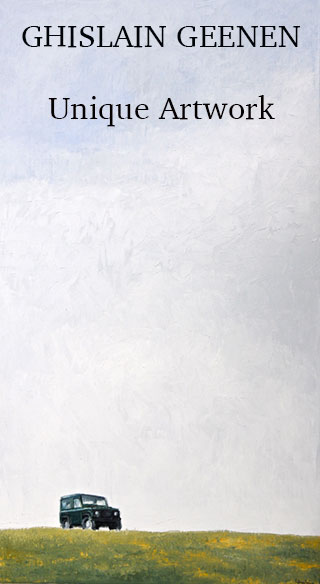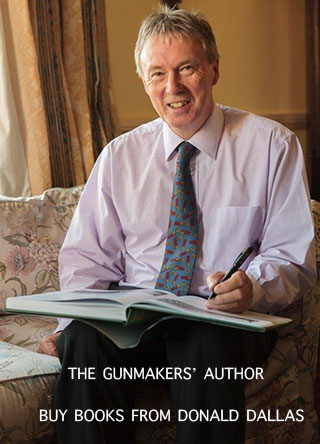Through social media, protectionist NGOs are flourishing. Anti-hunting groups broadly refuse—or refute—scientific research and often ignore socio-economic factors while collecting millions in donations and saddling range states and rural communities with high conservation costs. It doesn’t have to be this way.
Conservation used to be largely the purview of biologists and zoologists working for research universities or toiling in the field for government agencies. More recently, social sciences such as behavioral economics, sociology and ethics entered the conservation equation, followed by due consideration of the needs of rural communities and their livelihoods. Aldo Leopold, the venerated American environmentalist, ecologist, conservationist, forester and hunter, had suggested this holistic approach to wildlife management already in 1939.
What Leopold did not foresee was the emergence of a class of NGO (non-governmental organization, usually non-profit, and targeting social or political issues) whose sole raison d’être is to deny the use of wildlife, be it for food, clothing, income, work, recreation or anything else, especially hunting. These organizations now spread their anti-use campaigns around the globe through often-biased news releases and the massive mobilization of under- or misinformed followers on social media. And then the issues are uncritically taken up by celebrities and politicians vying for popularity and votes.
Most news consumers, including celebrities and politicians, don’t fully grasp the complexity of conservation issues. This makes it easier to aggressively spread negative publicity about the use of natural resources, wildlife in particular.
Protectionist NGOs typically refuse to accept conservation practices based on field research, socio-economic considerations and good science. By seeking to ban even regulated, sustainable, fee-paid hunting, their actions force wildlife-range states to dig into their own pockets to pay for conservation and to protect biodiversity. They also upset the livelihoods of indigenous communities, which are treated to the moralizing of urbanites whose lives and perspectives are fundamentally different.
By seeking to ban even regulated, sustainable, fee-paid hunting, their actions force wildlife-range states to dig into their own pockets to pay for conservation...
This relentless, misguided enviro-political activism raises serious ethical concerns, especially as it is no longer the pastime of a few fringe idealists. Today, the moral outrage of anti-hunting activists is global, well-directed and smacks of outright professionalism; anti-hunting campaigns are structured along hard-nosed business models.
Groups like Humane Society International, the Humane Society of the US, Born Free, the International Fund for Animal Welfare and other ban-all-hunting movements are now market-based. Together, they employ thousands of people, require large, steady revenue streams (generally in tax-deductible donations) and annually manage hundreds of millions of dollars, euros and pounds.
Such size and professionalization are expensive. To keep donations flowing, these groups need to create the perception of permanent crisis. This demands constant publicity, outreach, advertising and promotion. It’s a cycle that can raise legitimacy and accountability questions: Is this NGO honest with its members and sponsors about objectives and achievements? Does it collect money to cover payrolls and ad buys, or does it fund real conservation action on the ground, be it in the field or the halls of power?
Typically, professional NGO activism is glossed over for the public. Member-donors are invited to see their organization’s spokespeople as untiring, idealistic campaigners and influencers. In fact, they are salaried lobbyists who live on the self-declared platform that they fight only for the common good.
Such anti-use activists tend to employ science when it suits their needs and otherwise suppress or twist it. They rarely provide research-based solutions for the complex problems of habitat and wildlife conservation, or the needs of rural communities that co-exist with wildlife.
Lobbyists have no responsibilities beyond selling their viewpoints, and the public often does not hold them accountable. All that’s required is an emotionally charged photo and a lurid headline—backed up by an interview on a chat show that is part of a sophisticated PR campaign.
Should bloody images, arrogant slogans, half-true information and blatant refusals to compromise fail to sway the public, there’s the possibility of corruption, as in some apparent vote-buying at the recent CITES Convention in Geneva. Finally, our anti-use NGOs may simply invoke the Precautionary Principle: Resist any action or legislation whose effects may be disputed—by anyone, but especially by themselves.
Protectionist NGOs also try to sabotage multilateral environmental agreements—CITES and the Convention on Migratory Species, for example—and national policies such as the reopening of elephant hunting in Botswana. In this, their tools are knee-jerk legislation like the proposed CECIL Act in the US and the ban on hunting-trophy imports to some EU countries and the UK. Protectionists also fight to shelter more and more species under legal umbrellas such as CITES and ESA, the US Endangered Species Act, whether or not wildlife scientists agree.
Globally, billions of people, especially those who follow social media, are constantly subjected to this coordinated, relentless and professionally packaged barrage of protectionist propaganda—truly “fake news.” These campaigner-influencers and their organizations and followers will not take in any views, however credible, different from their own except to attack them. Their reactions to the letter (“Trophy hunting bans imperil biodiversity”) in Science Magazine in August, signed by 133 researchers and conservationists, myself among them, make this clear.
Professional protectionist NGOs are sophisticated operations, led by people whose expertise is management and fund-raising, and not conservation. They, and many of their ardent followers, appear to demonstrate a form of cognitive bias called the Dunning-Kruger Effect, an “illusory superiority” that “comes from the inability of people to recognize their lack of ability [in conservation sciences].”
... protectionist NGOs are sophisticated operations, led by people whose expertise is management and fund-raising, and not conservation.
In other words, they’re too ignorant to realize how ignorant they are. Enjoying their emotional outrage and the mantra-like repetition of false information, anti-use zealots would rather remain atop the peak of Mt. Stupid—or descend into the Valley of Despair—rather than make the arduous climb up the Slope of Enlightenment. After all, studying peer-reviewed scientific papers is hard work, especially if the information doesn’t fit one’s preconceived beliefs.
A couple of decades ago, DKE-infected anti-hunters were a minority that could be discounted. But with social media, which they have learned to use to great effect (and sustainable-use proponents have not), this sort of activism has become a serious challenge. Fact-based rebuttal or feedback is rarely successful; in fact, it is often suppressed on anti-use websites. Readjusting their ideas or moral compass, much less admitting that they were wrong, would put an end to their careers. Their goal is polarization, not constructive, solution-oriented dialogue.
Their disciples—such as Trevor Noah, who recently used platitudes and false information to belittle hunting on The Daily Show; Tory MP Zac Goldsmith, who serves in the Conservative Johnson-Cabinet as Minister of State for Environment and International Development, and just introduced legislation to ban imports of hunting trophies of animals on Cites Appendix I and II in the UK; or US Representative Raúl Grijalva (D-AZ) of CECIL Act (HR2245) fame—would do better to rely on sound advice from scientists instead of quoting biased ban-all-hunting campaigns.
Some would say that, as public personages, these leaders have a responsibility to seek out the truth: Regulated, sustainable hunting harms neither society nor biodiversity and its myriad components; on the contrary, it supports many aspects of conservation, and it can level the economic playing fields for many rural communities.
Wildlife researchers, rural communities and government authorities in hunting states must realize that it is no longer enough to publish peer-reviewed papers in the academic literature. Conservation research results must be communicated to the global audience through news releases that speak to non-specialists in plain language. Those who value biodiversity and understand the needs of people who live with wildlife must also engage with the world at large via social media.
Scientists especially must leave their academic cocoons and use all media outlets to counter false and out-of-context information—only relentless proactive engagement will get real science into the spotlight, eventually to be recognized by society in general and legislators in particular.
The Dunning-Kruger effect & capability development. @RealMikeRother says, “most of us can probably recall having stood on Mount Stupid at one time or another.” Ouch! (In this diagram, 100% confidence only occurs on Mt. Stupid, as thinking scientifically means never being 100% certain.)
As for the hunters among our readers: Recognize that you too may suffer from the Dunning-Kruger Effect in some aspects of your life. Don’t settle for “we’ve always done it this way” or “I know what’s right”. Investigate, ask questions, look for better solutions and then, as necessary, adapt. (Begin by reading “Hunting & Social Media: Namibia Has a Position on That” in this issue, followed by “The Dilemmas of Wildlife Management.”)
Sustainable hunting is only one piece in the complex puzzle of biodiversity conservation. Get active in hunting and conservation organizations. Practice and teach sustainable hunting, hunting ethics and fair chase. Stay informed about all aspects of conservation and true environmentalism. Speak and write to your local and regional news editors, the schools of your kids, your neighbors and friends. Expand your social network to spread factual information about the hunting side of the biodiversity/conservation story in understandable, non-inflammatory language.
Given some daylight, truth is powerful.
Gerhard Damm is the joint Editor-in-Chief of Conservation Frontlines and President of Conservation Frontlines Foundation.
Published by Vintage Guns Ltd on (modified )




